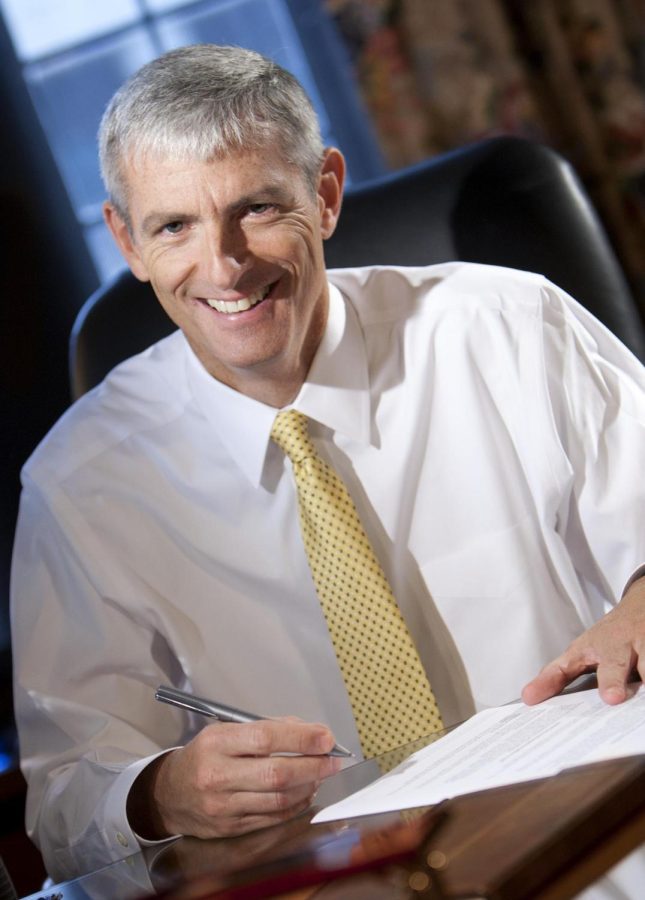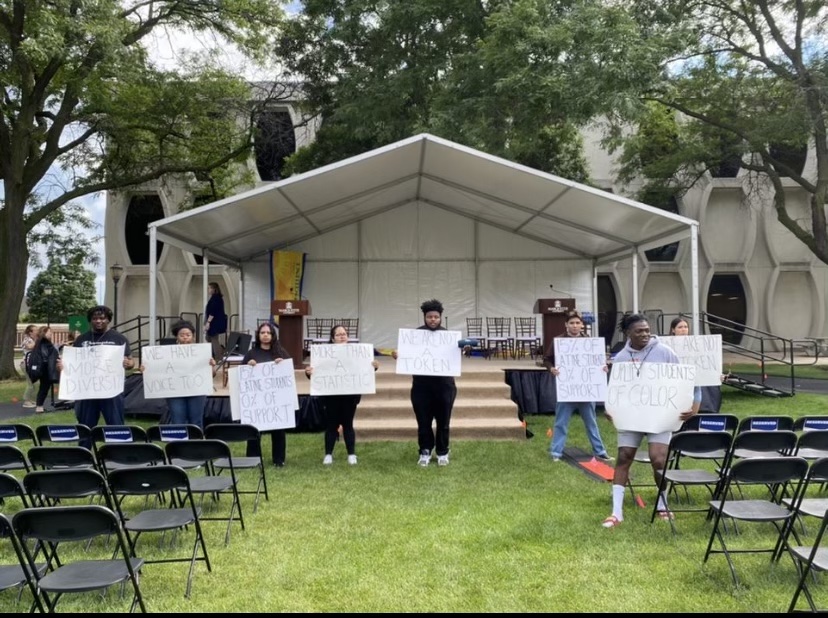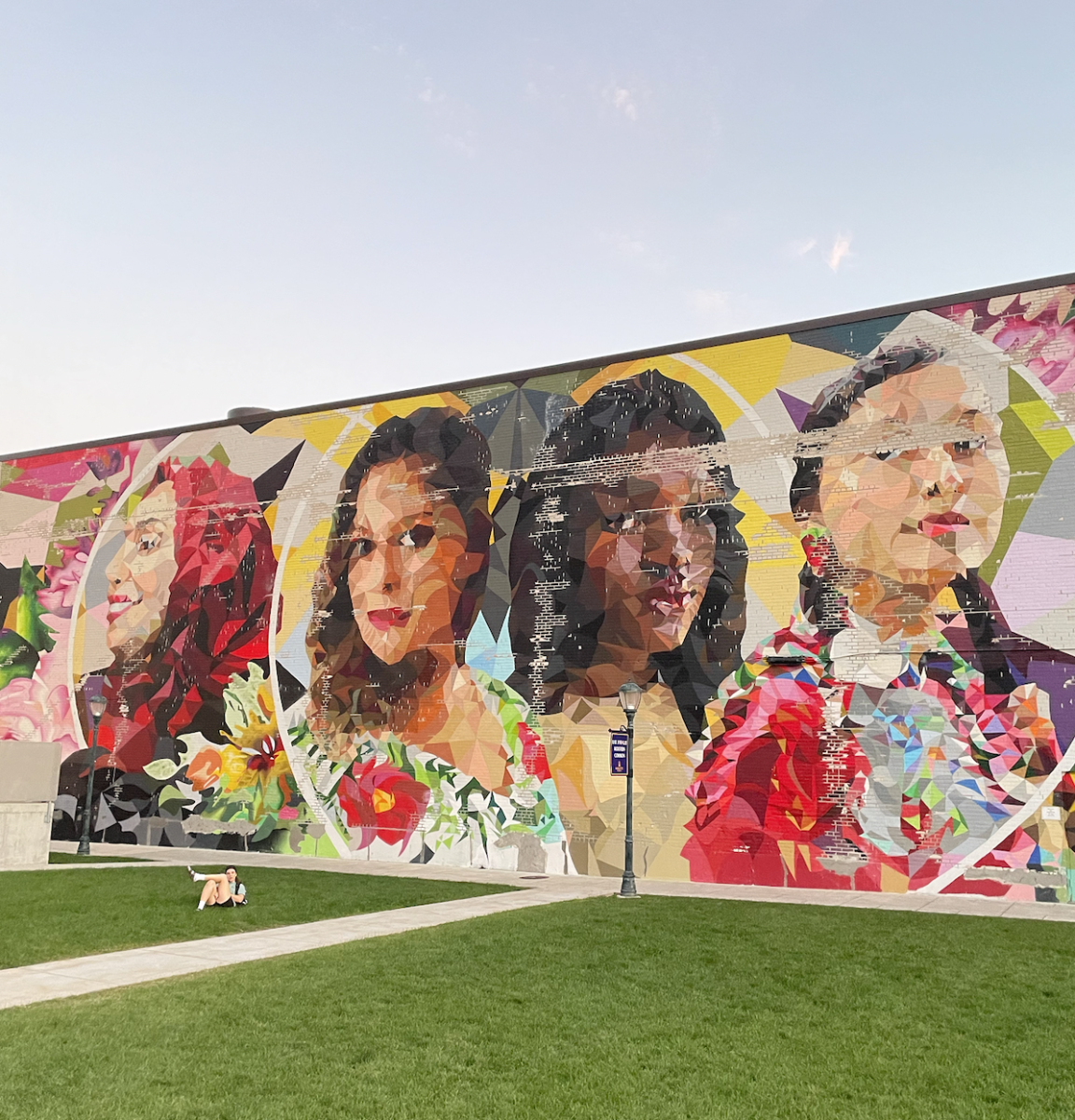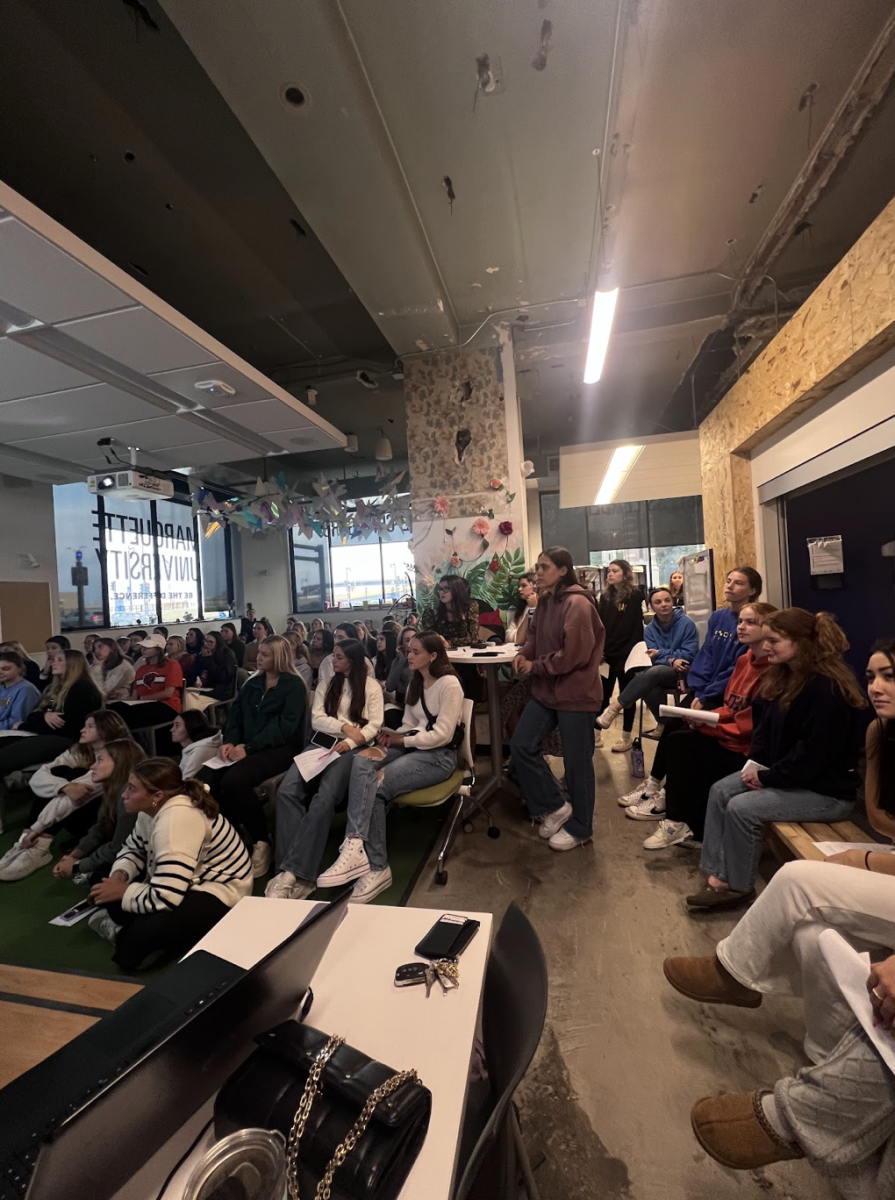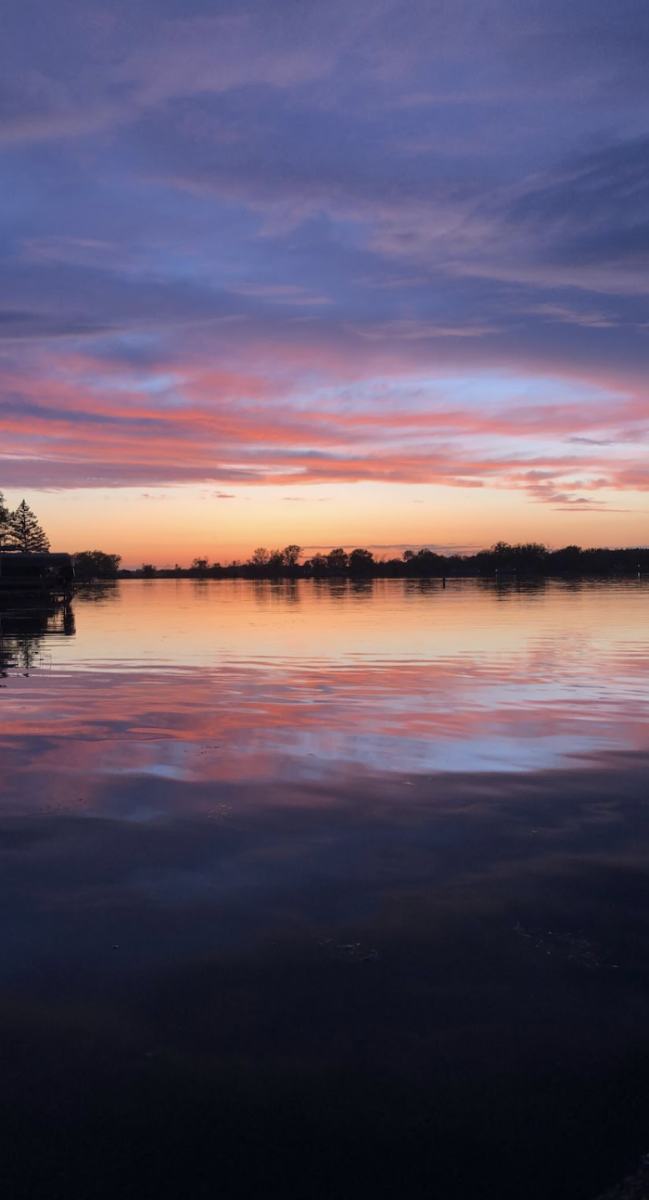Mohammad Samir Siddique was a senior at the University of Wisconsin-Milwaukee in 2013 when he was elected to be student government president. However, the university’s administration refused to recognize the election that year, and instead, hand-picked their own student government, rewrote the student government constitution and required all elected students to step down.
The top administrator during this time was current Marquette University President Michael Lovell, then chancellor at UWM.
In 2014, a school committee disciplined Siddique, saying that he had falsely represented himself as student body president and ordered him to admit this to more than 1,000 students who had supported his student government group rather than the administration’s.
“Right from the get-go, I said, ‘They can’t do that. This is extra-legal interference that the Supreme Court has said they can’t do,’” Taylor Scott, an elected student in 2013, said. “Right off the bat, I wanted to fight. And unfortunately, we didn’t really necessarily have all of the right people or all of the right drive to do that, just because we were exhausted from fighting them.”
The dispute resulted in a series of lawsuits in both the state and federal court, lasting nine years, and ending with a six-figure settlement from the university in June 2022.
Nearly 10 years after the initial student government case at UWM, student leaders at Marquette University held a demonstration at the New Student Convocation to hold the university accountable for how students of color are treated on campus Aug. 25, 2022. The result was another mostly vacant student government in Milwaukee within the same decade.
These demonstrators included student members of the Black Student Union, Marquette University Student Government, National Association for the Advancement of Colored People at Marquette University and the Latin American Student Organization.
The university postponed the convocation and took disciplinary action against the participating students, sending them through the Student Code of Conduct process. From there, the students were put on probation, which later forced them to step down from their leadership positions.
“It’s worth stressing that while the students’ protest disrupted the convocation, it was university administrators who canceled it. The students never had that power,” Ben Pladek, associate professor of English at Marquette University, said in an email. “At the convocation, administrators could have done many things to defuse the situation. Indeed, it was their job as leaders (and the ‘adults in the room’). They didn’t.”
Students’ response and consequences
After learning that their student government was being disbanded, Scott said he and Siddique were on the forefront of the legal research being done by the student body and the student association to understand their rights. However, Scott said they had already spent most of the academic year pushing back against the administration for more student resources.
“We saw for at least a year prior to that where (Lovell) and his vice chancellor for student affairs had started to be very heavy handed,” Scott said. “I think part of (the student government) saw it coming, but part of us were just exhausted while trying to represent the students while trying to make sure that their dollars were being spent wisely and in their best interest, while still being students ourselves.”
For example, Lovell had pushed to increase student fees to fund a new student facility costing over $100 million. The student association, who had rights to share input on these changes, had opposed it.
Members of the dissolved student association responded to the university by drafting a new student government constitution, which allowed students the power to select their own representatives. After over 1,300 students signed a petition to support the new constitution, the government held re-elections.
Siddique was again voted in as president.
But again, the university chancellor, Lovell, and administration refused to acknowledge the leadership role.
Siddique was required to participate in community service and to publicly admit that his group’s views were wrong. The consequence of disregarding these rules: Indefinite suspension from the university without the ability to transfer.
At Marquette this past year, the convocation demonstrators faced similar consequences. The original consequences for the student demonstrators was to pay a fine of $300, write an apology letter, complete 20 hours of community service and write an educational program on the demonstration policy.
Like Scott and Siddique, the Marquette students this year had to learn their legal rights quickly. They also stepped down from their leadership roles.
And both incidents were largely due to tensions with university administration, although this time, the Marquette students attributed their main cause for standing up to racism.
“It’s the fact that last spring a parent dropped off her daughter and saw some very explicit posters on the lamppost. And that was never really taken care of or addressed because I don’t know what happened after that. It’s the fact that we can come on campus and we can see instances where students of color are the only people of color in their class, and their professors are looking at them to be spokespersons for their race,” Samari Price, a senior in the College of Arts & Sciences and former executive vice-president of MUSG said. “It’s the fact that certain names are hard to pronounce, and they don’t even make an effort. They try to give you a name that they already created, but it’s like, that’s not my name. You don’t get to create a name for me when my parents already did it.”
Pladek said that from his perspective, university leaders are punishing the students for making them feel personally embarrassed and thrown off at convocation.
“It’s not just unfair, it’s immature. Our leadership should be better at handling these situations,” Pladek said in an email.
While the $300 fine was rescinded after the involved students appealed, the rest of the consequences remained.
“As for the consequences themselves, they were and remain needlessly punitive,” Pladek said in an email. “The process the students were put through … was closer to an interrogation than the ‘trust-building’ process the university claims to have adopted. Students cried and were asked to rat on each other. This is not restorative justice, and it’s certainly not going to rebuild trust. It’s a silencing tactic.”
Most of the students who were forced to step down from their leadership positions were students of color. Pladek said it has also forced the remaining student leaders to scramble to cover their spaces, and that it’s unfair to all the students in MUSG.
“I am glad the university rescinded the $300 fine, but the fact that they did so only after a public protest campaign speaks volumes,” Pladek said. “If you only do the right thing after you’re publicly embarrassed, you’re not doing it for the right reasons.”
Also, whether a coincidence or not, Marquette University is currently investing $80 million into a new wellness and recreational facility, just like Lovell did at UWM.
Behind-the-scenes: An independent investigation at UWM, changes in conduct process at MU
An independent investigation by officials at the University of Wisconsin-Whitewater uncovered problems with the 2013-14 Student Association Elections at UW-Milwaukee, including old bylaws that were supposedly used to prevent certain students from taking office and lack of availability of party registration forms.
Lovell wrote to the outgoing student association president that he wouldn’t recognize the election results.
“This was Lovell asking UW-Whitewater to do a quote-unquote ‘independent investigation’ of the elections so that he had outside justification in his mind to overthrow the elections, even though he didn’t have the authority to do so,” Scott said. “They were supposedly investigating the elections, but it was a farce. We ended up actually, I think we refuted every single one of the points that they made.”
The document states that this investigation was a response to Lovell’s request for the UW-Whitewater team to investigate the UWM’s student association 2013 election process and formal complaints brought against it.
While the UWM university leaders may have received some complaints from students who lost the election, Scott said those issues should have been resolved through the student court. However, a few students who had lost the election were promised that the administration would solve it for them.
“If you were on the ground at the time and you saw the way the elections were going, this is kind of like if some tiny little party like the American Constitution Party or something were to suddenly say, ‘oh no, we have to overthrow the election. Biden didn’t win. Our guy would have won, but he was eliminated from the ballot in these two states.’ I mean, it was just ridiculous,” Scott said. “This was not anywhere near a close election.”
Rather than doing a re-election for the few students who potentially lost unfairly, the university refused to acknowledge them.
“(The university) said, ‘No one, even if they were running uncontested, is going to be allowed to take office,’” Scott said. “We’re throwing out the entire election, even the elections that there were no complaints about.”
With Lovell refusing to recognize the student government, the judicial branch of the student association appointed a new student government, called the Board of Trustees, which created a new student government constitution to prevent a similar situation from happening again. The new constitution, written by the Board of Trustees, made it harder for the UWM student association their own rights, and to have a say in university decisions, Grass and Scott said.
However, Scott said he thought the previous constitution was fine, and the new one didn’t do anything to fix it. While Scott said the Whitewater investigation’s recommendations were very vague, there was nothing written about creating a new constitution.
Scott said the investigation mostly included interviews with the students who were complaining, but they were mostly unable to verify the complaints.
“They wrote this thing that was fun to look at, but it didn’t really say very much,” Scott said. “They brought that up a couple of times during the lawsuit, so we said, ‘Bring it on,’ let’s litigate this because that report is ridiculous. Ridiculous and none of it will stand up if it actually goes to an actual legal proceeding.”
Scott said that if they did a real investigation with depositions and put those people on the stand, the courts would find that nothing in the election was seriously wrong.
While Marquette has not had any known independent investigations similar to the one at UWM, students said parts of the legal hearings and code of conduct process were confusing.
For example, Bridgeman Flowers, a junior in the College of Education and former president of MUSG said the students all received different punishments through the student conduct process. While Flowers and Price received “suspension with abeyance,” other student leaders did not.
Suspension with abeyance means that violating the rules before probation ends could result in suspension for an entire year. A suspension could mean being required to withdraw from classes and not being able to apply for classes for the following semester.
Flowers and Price were the first all-Black ticket for president and vice president for MUSG at Marquette University.
“It’s also even weirder because the punishment that (Flowers and Price) got, they said was designed for people who commit drug violations and alcohol violations, so to equate what we did to that,” Flowers said. “They say it’s for people who committed it repetitively … But this is the first time we’ve ever been on conduct and this is the punishment they gave us.”
Flowers and Price said the order of the hearings was also confusing to them
“All the Latinx students went on the same day. Some of them went together, but the Black students went back-to-back on different days,” Price said. “It was to the point where me and one of my peers, we could’ve went together because mine was first, his was next. But mine went so much over that it infringed on his.”
Legal Aspects
“I don’t approach my legal cases with a great deal of confidence usually,” Gary Grass, the attorney for the students in the UWM case, said. “I like to think that the law will be vindicated, but, you know, I’ve got a good record of winning some stuff.”
While Grass said most of his expertise lies in the criminal defense area – and criminal appeals are typically very difficult to win – he was only able to get justice for a few people who were unlawfully convicted.
“I tend to come into these things with a fairly low degree of confidence. But I always think that there’s something there,” Grass said. “I look at (the case), I look at the law, and I say, ‘Look, there’s something there. This could be fought.’”
So when Siddique and Scott asked Grass if he could represent them, Grass said he was hesitant at first.
“I said, that would be way too much work, I wouldn’t want to do that. That would be the dumbest thing in the world for you to get involved in this. And so ultimately what happened is, I gave them some counsel as to how to proceed,” Grass said.
But after Siddique and Scott began trying to start their own student government, which they were allowed to do under the statute, Grass said the university said it was illegitimate. Grass said this blatantly violated the student’s First Amendment rights, and he decided to pick up the case.
“You really have to try to find something that’s almost exactly on point, where the same thing was done to someone else and it was found to be illegal,” Grass said. “In the case of what we did, what they did here, I thought it was so blatant that we would get past that, just because there were so obviously just, ‘I don’t like what they said, so we’re going to punish them for it.'”
It was found to be illegal not in the Eastern District of Wisconsin, but in the Seventh Circuit court, which serves Illinois, Indiana and Wisconsin.
“It was so blatant. And it’s amazing, but I think you have to look at the student disciplinary system, which does not care about the rights of the students at all,” Grass said.
Grass said that similar to Marquette, UWM’s system is not a “courtroom model,” where the person has a chance to defend themselves and their legal rights.
“They feel that that model is not appropriate for the setting, that there’s almost no rights that the students should really have and you shouldn’t give them any rights really beyond the very minimum,” Grass said. “What you really want to do is correct the problem.”
He said the UWM system presumes that the students are guilty, but this same idea is often perpetuated nationwide.
“We say ‘How do we bring this person back into the fold and how do we restore them to the community? How do you know what do they need to do to make it right?,'” Grass said.
Grass said students can only go back to being a full member of the university community after completing the necessary consequences, whether it’s doing community service or writing a letter. He also said he feels like the rights of the students are barely part of the constitution anymore.
In the UWM case, Grass said it was a disadvantage for students to have an attorney in the University of Wisconsin system, so when Siddique had his hearing, Grass said he didn’t go.
“It’s supposed to be an educational experience for you, not a disciplinary experience. It’s so weird,” Grass said.
While he is unsure how student disciplinary hearings actually work at Marquette, he believes they are similar.
“You get your chancellor usually from another university where they’ve acted as chancellor or president, so it’s all kind of one big homogenized field now. Everything is kind of the same everywhere,” Grass said. “I think that’s going to be particularly true between UWM and Marquette because here, they’re in the same city, you’ve got some of the same personnel and they’re obviously … they’re going to talk to each other.”
Grass said he thinks it’s very natural for the two universities to become similar even though one is public and one is private.
“When you start looking at the situation at UW-Milwaukee and the current situation at Marquette, you’re going to find that indeed there might be some of the same people, but I also would agree that there’s a larger cultural issue of not empowering students to take any roles of leadership where they might actually be able to think for themselves and truly represent the students as opposed to really just being an arm of administration,” Grass said.
Changes, negotiations
In the settlement negotiations, Grass said that the legal counsel said they would make some of the requested changes, such as allowing the student government to have a stronger say in decision-making and having clearer boundaries between the student government and university administration.
“We didn’t achieve the change we set out to,” Scott said. “The student government at UWM is still founded upon administrative interference, but it’s bittersweet to receive an apology from an assistant attorney general on behalf of UWM and the UW System for what we were put through in our attempt to stand up for the rights of students. They claimed as we settled that our actions led to changes at the university, but we never were told what change happened.”
Grass said he tried to contact the legal counsel at UWM and ask what changes have been made. He said he never got a response.
“Maybe they’ve listened to us a little bit, but I don’t see a whole lot of evidence of that,” Grass said. In the course of this whole thing, we came out with like a list of like 50 things that we wanted to change, and to my knowledge, haven’t really done any of them.”
Grass said there are lots of structural things where the students, just due to turnover, have given up a lot of authority and empowerment that they had, whether it was just based on precedent or statutes.
He said students used to be a lot more involved in the leadership and administration of their universities.
“When we go into court and we try to explain student shared governance, we have to kind of get past this feeling,” Grass said. “They’re like, ‘No, this isn’t student council.’ They’re not organizing a dance. These are people that are supposed to be running the school.”
Marquette University student demonstrators were also supposed to be running the school.
Marquette administration declined to comment on the pending student conduct cases, as they are still ongoing. However, the Marquette community has shared hopes for change in the future.
Pladek said he hopes to see a real commitment from university leadership to understanding the causes for the legitimate anger of students of color on campus.
“Our BIPOC students have been agitating for meaningful chance since at least 2014, and every time change happens, it’s because the students themselves pushed hard for it,” Pladek said in an email. “They shouldn’t have to do this work for Marquette. They have a right to be frustrated. University administrators need to acknowledge that.”
This story was written by Skyler Chun. She can be reached at [email protected]

